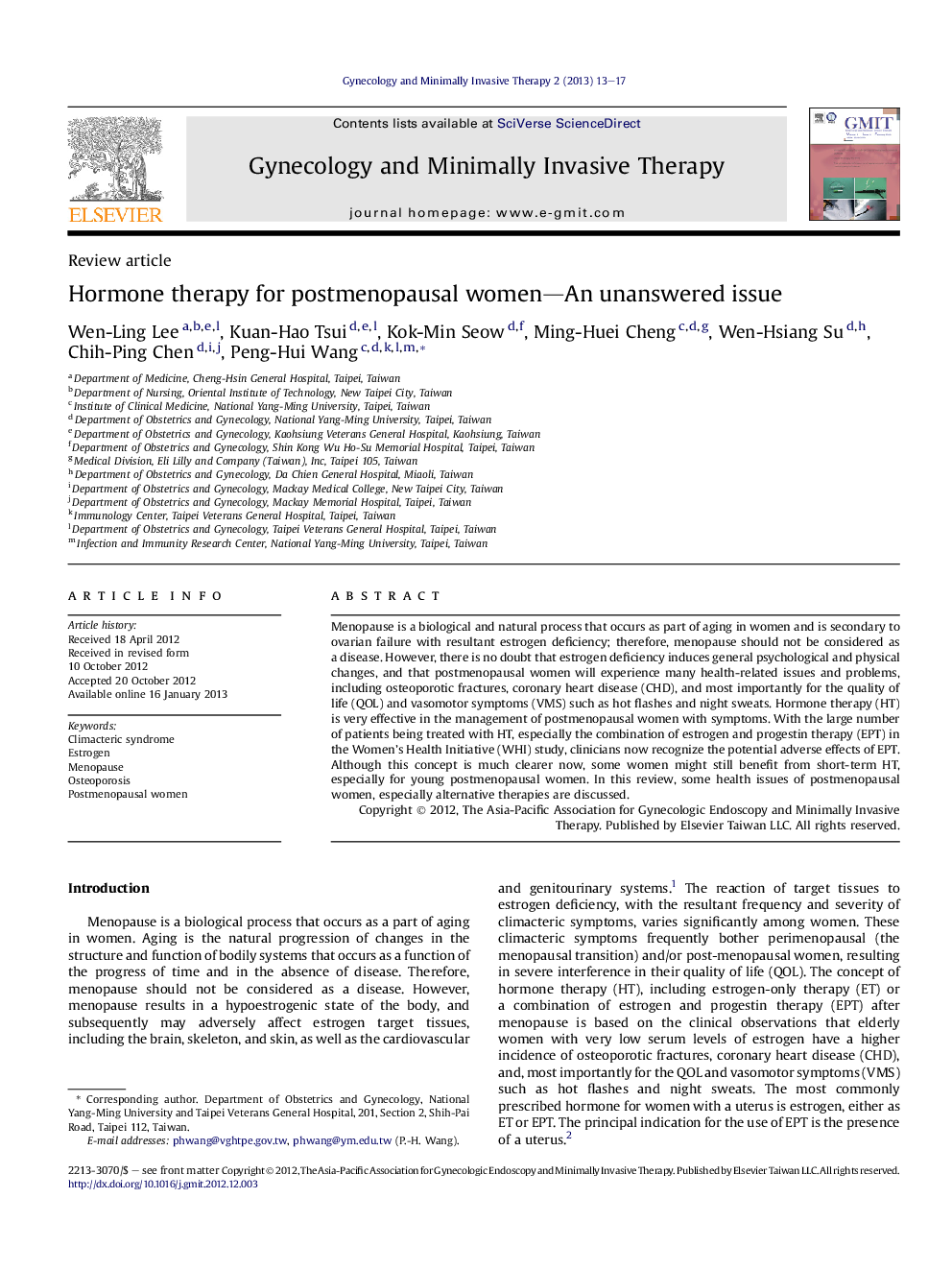| Article ID | Journal | Published Year | Pages | File Type |
|---|---|---|---|---|
| 3948297 | Gynecology and Minimally Invasive Therapy | 2013 | 5 Pages |
Menopause is a biological and natural process that occurs as part of aging in women and is secondary to ovarian failure with resultant estrogen deficiency; therefore, menopause should not be considered as a disease. However, there is no doubt that estrogen deficiency induces general psychological and physical changes, and that postmenopausal women will experience many health-related issues and problems, including osteoporotic fractures, coronary heart disease (CHD), and most importantly for the quality of life (QOL) and vasomotor symptoms (VMS) such as hot flashes and night sweats. Hormone therapy (HT) is very effective in the management of postmenopausal women with symptoms. With the large number of patients being treated with HT, especially the combination of estrogen and progestin therapy (EPT) in the Women's Health Initiative (WHI) study, clinicians now recognize the potential adverse effects of EPT. Although this concept is much clearer now, some women might still benefit from short-term HT, especially for young postmenopausal women. In this review, some health issues of postmenopausal women, especially alternative therapies are discussed.
